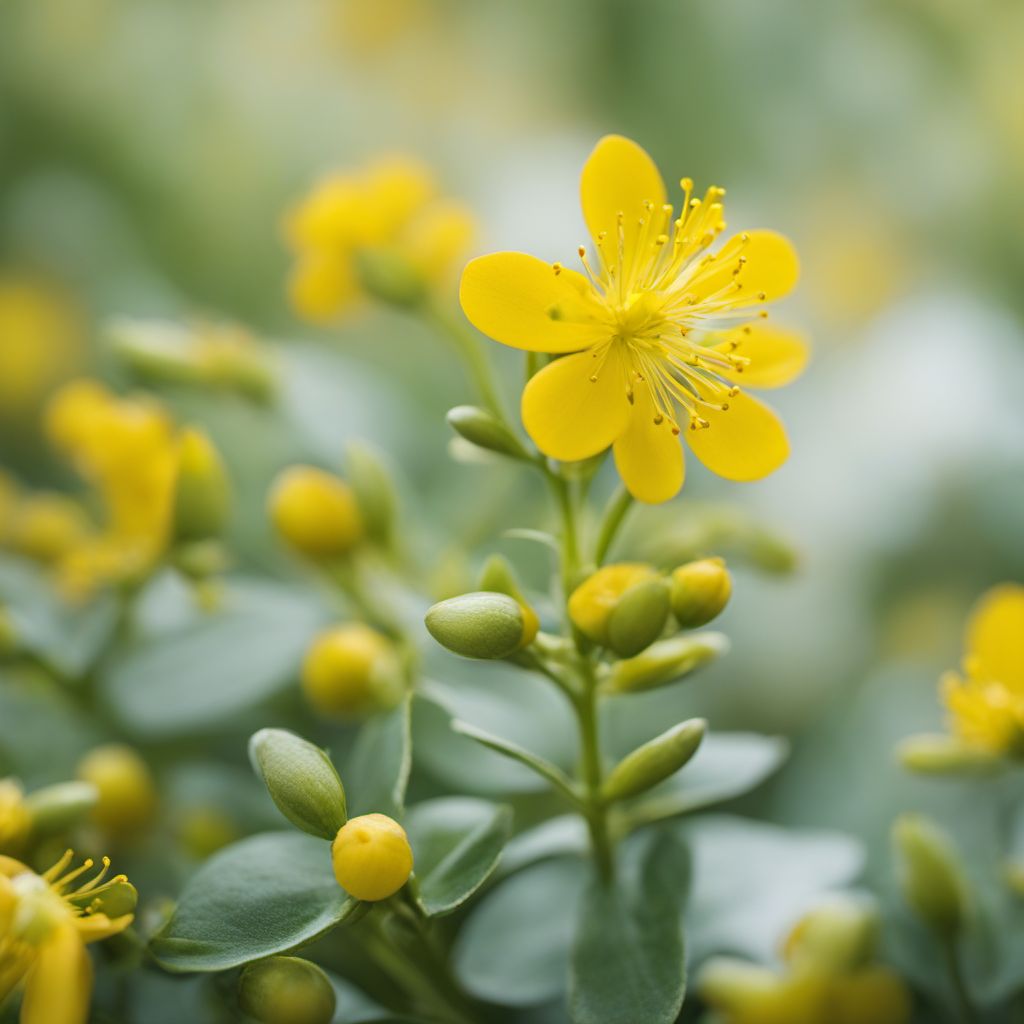
Ingredient
St. John's wort infusion flowers
The Healing Power of St. John's Wort
St. John's wort infusion flowers, also known as Hypericum perforatum, are delicate yellow flowers that are commonly used to prepare herbal infusions or teas. These flowers possess a distinct aroma and a slightly bitter taste, making them a popular choice for those seeking natural remedies and herbal therapies.
Origins and history
St. John's wort has a rich history dating back to ancient Greece, where it was believed to have mystical and healing properties. It has been used traditionally to treat a range of conditions, including depression, anxiety, insomnia, and nerve-related pain. The flowers are typically harvested during the summer months when they are in full bloom.
Nutritional information
St. John's wort infusion flowers are a good source of flavonoids, hypericin, and hyperforin, which are believed to contribute to its therapeutic properties. They are also low in calories and contain no fat or cholesterol.
Allergens
Individuals with known allergies to plants in the Hypericaceae family, such as St. John's wort, should exercise caution when consuming or handling these flowers. It is advisable to consult with a healthcare professional before incorporating St. John's wort infusion flowers into your diet, especially if you are taking any medications or have pre-existing medical conditions.
How to select
When selecting St. John's wort infusion flowers, look for dried flowers that are vibrant yellow in color and free from any signs of mold or moisture. Opt for organic or sustainably sourced flowers whenever possible to ensure the highest quality and purity.
Storage recommendations
To preserve the freshness and potency of St. John's wort infusion flowers, store them in a cool, dark place in an airtight container. Avoid exposure to heat, moisture, or direct sunlight, as these can degrade the quality and efficacy of the flowers. Proper storage will ensure that the flowers retain their therapeutic properties for an extended period.
How to produce
St. John's wort can be grown in home gardens or cultivated in specific regions with suitable climates. It requires well-drained soil, ample sunlight, and regular watering. However, it is important to note that the cultivation of St. John's wort for medicinal purposes may require specialized knowledge and expertise.
Preparation tips
To prepare a St. John's wort infusion, steep a tablespoon of dried flowers in a cup of hot water for about 10 minutes. Strain the flowers and enjoy the tea as is or sweeten it with honey or a natural sweetener of your choice. The infusion can be consumed hot or chilled, depending on your preference. It can also be used topically as a compress or added to bathwater for a soothing and relaxing experience.
Culinary uses
St. John's wort infusion flowers are commonly used in herbal medicine and alternative therapies. They are primarily consumed as a tea or infusion, either on their own or blended with other herbs for enhanced benefits. The flowers can also be used to make tinctures, oils, or salves for topical applications. Additionally, St. John's wort infusion flowers are sometimes incorporated into culinary creations, such as herbal syrups, jellies, or infused oils, to add a unique flavor and potential health benefits.
Availability
St. John's wort is native to Europe but can now be found growing in various regions around the world, including North America, Asia, and Australia. It is cultivated in countries such as Germany, France, and Bulgaria for its medicinal properties and is also available in dried form for purchase in health food stores, herbal shops, or online retailers.
More ingredients from this category » Browse all
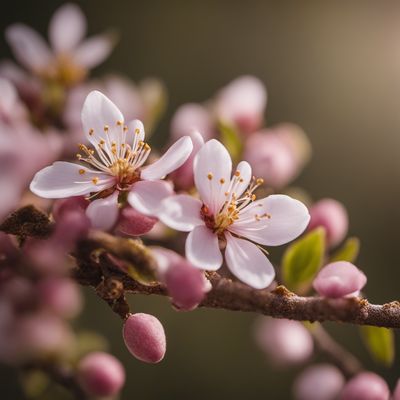
Almond infusion flowers
The Fragrant Blossoms of Almond

Clary sage infusion flowers
The Fragrant Elixir
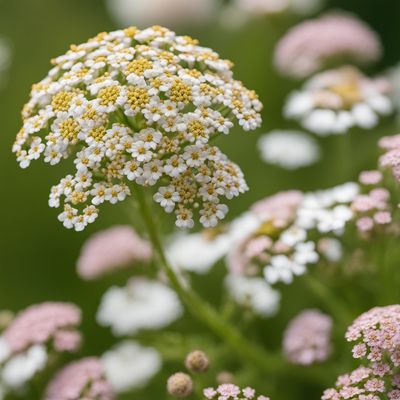
Yarrow infusion flowers
The Healing Power of Yarrow: Unlocking the Benefits of Infusion Flowers

Cat’s foot infusion flowers
The Delicate Elixir: Unveiling the Secrets of Cat’s Foot Infusion Flowers
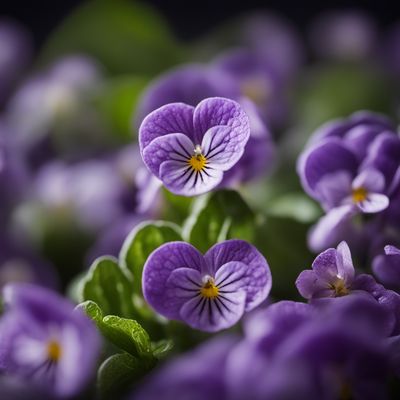
Sweet violet infusion flowers
The Fragrant Elixir: Sweet Violet Infusion Flowers
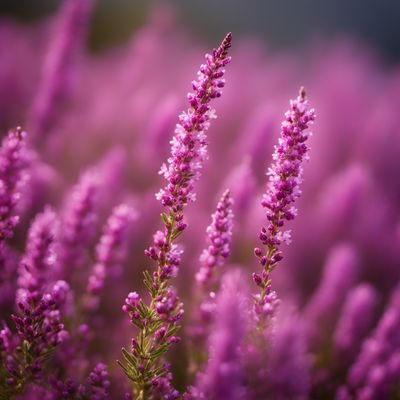
Heather infusion flowers
The Floral Elixir

Hawthorn infusion flowers
"Nature's Heart-Boosting Elixir: Exploring the Delicate Beauty of Hawthorn Infusion Flowers"

Sacred lotus infusion flowers
The Divine Beauty of Sacred Lotus Infusion Flowers
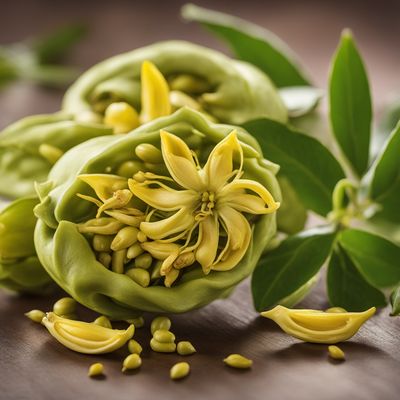
Ylang-ylang infusion flowers
The Fragrant Elixir: Ylang-Ylang Infusion Flowers

Black locust infusion flowers
The Fragrant Elixir of Black Locust

Sunflower infusion flowers
The Floral Elixir

Hollyhock infusion flowers
"Nature's Elixir: Unveiling the Beauty and Benefits of Hollyhock Infusion Flowers"